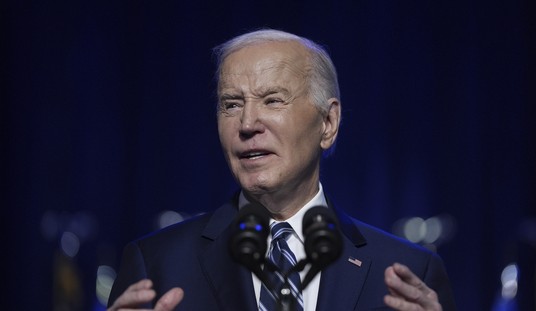This week, Congress moved closer to passing four separate bills with $95 billion in funding for Ukraine, Israel, Indo-Pacific allies and the domestic submarine industrial base. This funding has been debated for months, with much of it intended for wars that have been going on -- and likely will continue -- for a while. In other words, it's not new or surprising. Yet once again, it will be labeled "emergency spending," a tool allowing legislators to double down on their fiscal irresponsibility.
Before I explain my objection to their behavior, I would like to make two points. The first one might be the most important: I don't want you readers to get the impression that Congress is only irresponsible when using the emergency label to spend money. Congress is irresponsible all the time. Legislators have accumulated $34 trillion in debt without any real collective thinking about how to pay for it. The deficit is at 5.6% in a time when America is at peace and the economy is growing. They have done much of this deficit spending outside of the emergency process.
Second, there's nothing wrong with using the emergency label to pay for truly unexpected spending. When an unexpected catastrophe hits, legislators should have a way to appropriate money quickly without having to wait for the next budget to be passed. That's what, in theory, supplemental bills are for. The emergency label provides Congress with some legroom. Legislators should not have to think through where every dollar will come from while a short-term crisis is underway.
The problem comes when Congress -- to circumvent normal budgetary discipline -- abuses the supplemental budgeting process to spend large amounts of money, both non-temporarily and for purposes that are predictable, and then labels this spending "emergency."
This abuse happens frequently. Because these bills are often passed quickly and under the pretense of pressing needs, there is less scrutiny of the spending compared to what occurs during the regular budget process. It's an opportunity for wasteful spending and the allocation of funds to projects that are not so urgent. In addition, the regular use of supplementals gives an incentive to agencies and Congress to inflate their annual budget requests and shirk planning for the unexpected, which is counterproductive to say the least.
Recommended
With supplements expected each year, they don't represent the unforeseen anymore. Let's just call them what they are: another gimmick for Congress to escape its own budget limits.
This is exactly what's happening now. We can debate whether the U.S. should direct funds to Ukraine or Israel, but one thing is sure: Any such funding should be allocated through the regular budget process so it can be subjected to the regular budget discipline. That would require Congress to have a conversation about tradeoffs and offsets.
Over at the Economic Policy Innovation Center, Paul Winfree and Brittany Madni explain that Congress and the president should have used the regular budget process to address several of the ongoing crises over the past months. Instead, Congress intentionally passed a $1.684 trillion appropriations bill and left the $95 billion to be funded as an "emergency" supplemental outside of the regular process and above and beyond the caps. Members of Congress now routinely refuse to subject themselves to budget caps that would require offsets of additional spending with real spending cuts and rescissions.
It's not as if there aren't many ways to offset this spending. Winfree has shown that as of last year, $120 billion was unobligated in the COVID-19 State and Local Fiscal Recovery Fund. The pandemic is over; that money should be rescinded. Meanwhile, the Cato Institute's Adam Michel has argued that the employee retention tax credit should be terminated or reformed. This could generate at least some $180 billion. Ending farm subsidies, which mostly benefit rich farmers at the expense of smaller and younger farms -- and all consumers -- would save money, too. Of course, all crony projects benefiting large and wealthy corporations should be on the chopping block. It would be easy to find at least $150 billion annually in this category.
While supplemental appropriations are crucial for addressing unforeseen events, Congress now constantly and unnecessarily abuses the process. The spending bills being pushed through today are no different. We deserve a more honest and thorough debate.
























Join the conversation as a VIP Member